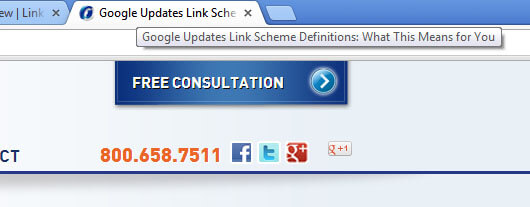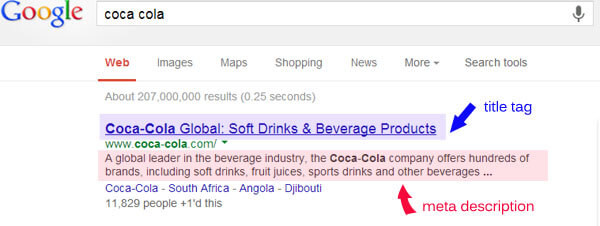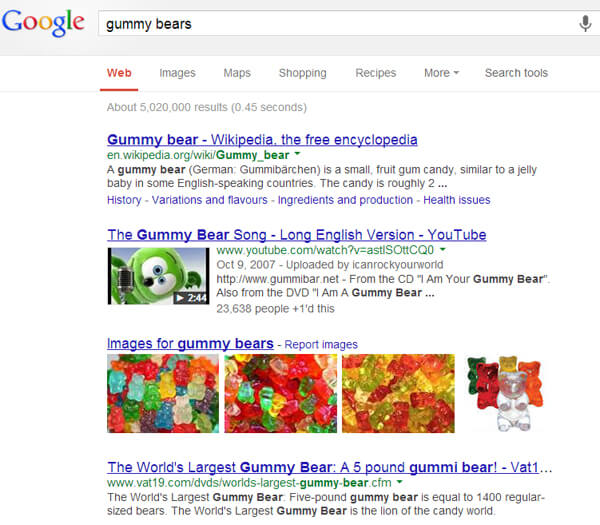We all know old habits die hard. Unfortunately, in the world of SEO using, old methods could mean major consequences.
In a world where the only constant changes, SEO’s are forced to kick old habits and evolve their strategies. Here are 5 techniques to leave back in 2013.
1. Over-optimized anchor text links
SEO’s got hit hard for spammy links in 2013. Any link that has manipulative characteristics could be devalued, or even worse, provoke a penalty. One of the many things Penguin 2.0 focuses on is over-optimized anchor text links. Google gives this example:
There are many wedding rings on the market. If you want to have a wedding, you will have to pick the best ring. You will also need to buy flowers and a wedding dress.
It is apparent that these links are for the sole purpose of search rankings and not geared towards informing users. Focus on natural linking that helps users better navigate your website. Your users and the search engines will thank you for it.
2. Using advertorials and press releases for backlinks
Documents that are exposed to mass distribution online, like press releases and advertorials, offered a quick and easy way for SEO’s to obtain backlinks and it worked; for a while. Google caught onto this quickly and listed the practice as a ‘link scheme’ in Google’s Webmaster Tools Guidelines.
Should you still use press releases and paid articles? Absolutely! Press releases and advertorials can still be a great way to bring in traffic to your website and increase your brand awareness, and including a link to your site is crucial. However, it’s a good idea to add the rel=”nofollow” attribute to your link so that it does not pass PageRank; and therefore is not a threat.
3. Optimizing for keyword searches
The way that users search has evolved and so has the way that search engines comprehend queries. Users are more inclined to use conversational queries such as “Where is the best place to buy an iPhone?”. As a result, search engines like Google are accommodating those queries by delivering more relevant answers. In fact, Google’s newest algorithm, Hummingbird, is made for just that.
If users and search engines are evolving, that means SEO’s who don’t evolve with them will be left in the dust. Instead of focusing strictly on keyword strategies, SEO’s now need to pay close attention to keyword themes and the latent semantic technologies that search engines are now using.
4. Bundling your mobile and desktop SEO strategy
The agenda used to be optimizing sites for desktop users, while mobile users became an afterthought. This isn’t the case anymore. Mobile users have different needs and expect a better mobile experience. Desktop and mobile are two different strategies and both need to be taken into account when optimizing for usability. It’s also important that your mobile site doesn’t redirect users to different content or pages. Doing so will likely result in a penalty.
5. Writing content for the sole purpose of inflating the site
When a bigger site has more content, it has typically proven to be beneficial. However, more content does not necessarily equal quality content. Creating content solely for the purpose of maximizing your website usually comes at the expense of inadequate, irrelevant content; which doesn’t benefit anyone.
Content has become increasingly more important, not only to promote organic links but as a mechanism to connect with your audience. While content has always had a place in SEO, SEO’s are now responsible for taking on a more intricate role that includes writing appealing content for the target audience.
While SEO has seen changes throughout the year, the New Year offers an opportunity to implement some new strategies and extinguish old habits; and we are more than happy to see these strategies go.
There has been a whirlwind of changes in 2013. If you have any questions about these changes, would like advice on ethical, white hat strategies in 2014, or would like to pursue an SEO strategy with Titan Growth, feel free to contact us!
Submitted by Erica Machin, Titan Growth




